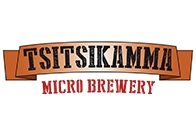A Timeless Trek in Tsitsikamma
November 17, 2016 | BY Marion Whitehead - SA Country LifeA Timeless Trek in Tsitsikamma

The article below was written by Marion Whitehead for the magazine South African Country Life. We were honoured to featured in such a wonderful magazine, and we have the article feauture on the Tsitsikamma Village Inn below. To read the full article and see more pictures, view their full article here.
A snippet of the article: A Timeless Trek in Tsitsikamma
A stroll back to my cosy room at the Tsitsikamma Village Inn soon sorts out my personal perambulation. I’m fascinated when my host, co-owner Chris Sykes, tells me the inn is on the site of what is believed to be the oldest building in the village, harking back to 1841. “Captain Thomas Duthie and his friends from Knysna used to come and shoot wild pigs in the forest. They walked on paths from the Crags and he built a shooting box here – today it’s our Hunters Pub.”
Once the pass was built, accommodation was needed for travellers waiting for the up or down day, according to the direction in which they were travelling. “Duthie’s Shooting Box became every traveller’s chosen place to rest at the end of their frightening and dangerous journey across the Storms River,” relates Chris. He and his partner, Irma de Villiers took over the Tsitsikamma Village Inn in 2010 after part of it was rebuilt to reflect the different styles of traditional Cape architecture.
A keen amateur historian, Chris has named one of the beers he brews at his Tsitsikamma Micro Brewery Bain’s Black Ale in tribute to the master road builder whose passes carried main road traffic between Port Elizabeth and Plettenberg Bay until the modern N2 was built in the 1950s. “Once the Paul Sauer Bridge over the Storms River was completed in 1956, the old pass was closed,” says Chris.
Bain was known for treating his convict labourers well. They were a mixed bunch: black, white and coloured; errant soldiers and sailors, stock thieves and even murderers. He always ensured they had a good supply of meat and bread, because in those days they really did do hard labour. He laid out Storms River Village and built a dam to provide them with fresh water via a furrow that you can still see at Armagh Country Lodge.
“The furrow is shown on old maps,” says co-owner Johan Brink, “and this sparkling water quenched the convicts’ thirst at the end of a long day’s hard labour.”
Johan takes me bushwacking along an old path to the graveyard, where some convicts found their final resting place. It’s a peaceful spot under tall forest trees. The graves are little more than mounds in the leaf litter, most without so much as a simple headstone. “Some died while working on the pass – of disease, hard work, you name it. There were no antibiotics in those days and medical care was minimal,” says Johan, bending down to remove a broken branch from one. “The convicts are really the unsung heroes of the old pass.”
The trees nod gently in the breeze. Their hard labour is our heritage.










